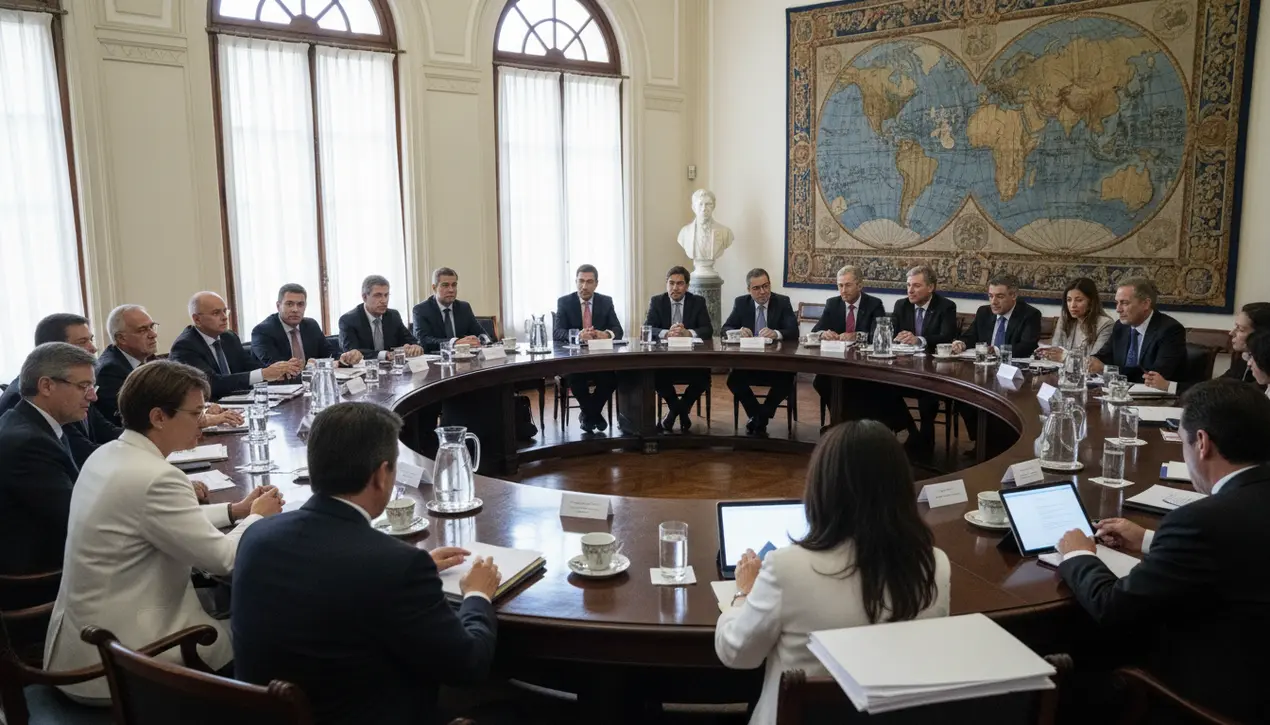
PoliticsdiplomacyMultilateral Summits
Global Leaders Reinforce Economic Cooperation at Colombia Summit
RO
Robert Hayes
2 hours ago7 min read4 comments
While the prevailing narrative in global affairs increasingly points toward fragmentation, with nations retreating into zero-sum calculations and protectionist stances, the recent summit in Colombia served as a powerful counter-narrative, demonstrating that the impulse for multilateral economic cooperation remains a potent force. European, Latin American, and Caribbean leaders, convening against a backdrop of geopolitical strain and inflationary pressures, deliberately reinforced their commitment to integrated economic strategies, a move that echoes the foundational principles of the post-World War II order but is recalibrated for contemporary challenges like supply chain resilience and the green energy transition.This gathering was not merely a diplomatic formality; it was a strategic gambit, reminiscent of the coalitions built during the Marshall Plan era, where shared economic interest was leveraged to foster political stability. The summit’s substantive outcomes, though still unfolding, are poised to focus on reducing trade barriers for critical minerals essential for the digital economy, establishing joint investment funds for sustainable infrastructure projects across the Atlantic, and creating new frameworks for digital trade that bypass the more contentious US-China axis.Analysts observing the closed-door sessions suggest that the European Union’s push for ‘de-risking’ rather than ‘decoupling’ from China finds a receptive audience in Latin America, which seeks to diversify its economic partnerships without alienating any single power. The long-term consequences could be significant, potentially birthing a new trans-oceanic economic bloc that operates with a distinct regulatory and environmental standard, thereby reshaping global trade flows.However, the path forward is fraught with the same historical tensions that have often hampered EU-Latin American relations, including disputes over agricultural subsidies and the lingering legacy of colonial economic patterns. The success of this reinforced cooperation will ultimately depend on whether the lofty declarations in Colombia can be translated into tangible investments and whether the political will in Brussels and capitals from Brasilia to Kingston can withstand the domestic pressures of populism and economic nationalism. This is not just about commerce; it is a deliberate effort to write a different chapter in the 21st-century geopolitical playbook, one where shared prosperity is still considered a viable, and indeed necessary, objective.
#featured
#diplomacy
#summit
#economic cooperation
#Colombia
#Europe
#Latin America
#Caribbean
Stay Informed. Act Smarter.
Get weekly highlights, major headlines, and expert insights — then put your knowledge to work in our live prediction markets.
Related News
Comments
Loading comments...
© 2025 Outpoll Service LTD. All rights reserved.